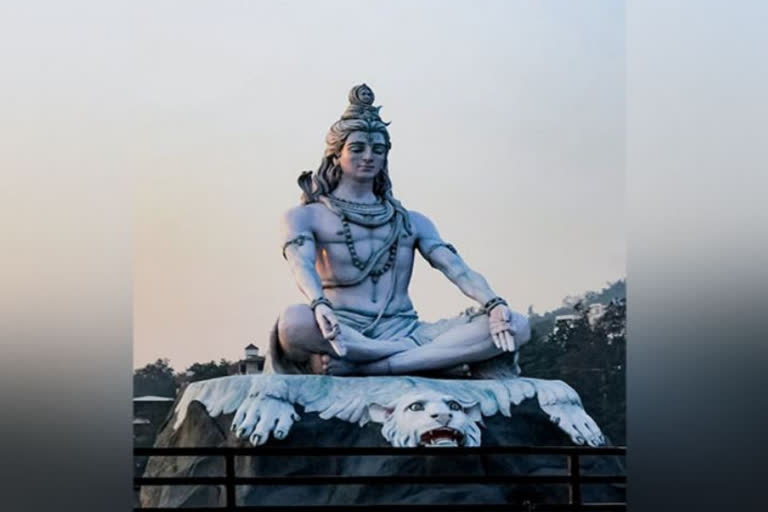New Delhi : Mahashivratri, which essentially translates to 'the great night of Shiva', is considered one of the most auspicious festivals in the country. It is celebrated annually with much fervour and excitement across India. This year Mahashivratri will be observed on February 18, 2023. So, get ready to hear chants of 'Har Har Mahadev' on this day.
It's believed that while there is a Shivratri every lunisolar month of the Hindu calendar, the Mahashivratri, happens only once every year, in February/March, when winter comes to an end and spring and summer begins. Out of the 12 Shivratris observed in any given year, Mahashivratri is considered especially auspicious, as it is supposed to be the night of convergence of Shiva and Shakti, which in essence means the male and feminine energies that keep the world in balance. Shiva and Shakti are revered as the embodiment of love, power, and oneness.
There are different legends throughout history that describe the significance of Mahashivratri. One of them claims that Lord Shiva and Goddess Parvati tied the knot on this day. Purusha (mindfulness) is embodied by Lord Shiva, whilst Prakriti (nature) is embodied by Maa Parvati. With the union of both consciousness and energy, it facilitates creation. Another story says, during Samudra Manthan, a pot emerged from the ocean which consisted of poison. All the Gods and demons were terrified that this will destroy the entire world and so, Gods went to Lord Shiva for help.
To protect the entire world from the evil effects, Shiva drank the entire poison and held it in his throat instead of swallowing it. Due to this, his throat became blue and hence he came to be known as Neelakantha. Mahashivratri 2023 celebrations, Every state in the nation, including Uttarakhand, Rajasthan, Uttar Pradesh, Madhya Pradesh, Punjab, Himachal Pradesh, Bihar, Karnataka, Tamil Nadu, and Andhra Pradesh or Telangana, celebrates Mahashivratri. Shiv Archana is performed in Shiva temples around the nation by devotees who also present milk, dhatura bel patra, sandalwood paste, ghee, sugar, and other items to the Shivling. Shiv devotees undergo a 24-hour fast that is broken the next morning. Mahashivratri Puja, in contrast to many other festivals, is performed at night.
Devotees consume satvik foods like ragi, sabudana, fruits, and some vegetables while keeping the fast. If you're also fasting during Mahashivratri, so look at these dos and don'ts to keep in mind while celebrating this occasion.
Dos of fasting on Mahashivratri:
On the day of the fast, get up early around sunrise. One should take a bath and dress in clean, preferably white, clothing on the day of the fast. To make your fast more fruitful recite "Om Namah Shivay" multiple times. Due to the fact that Shivratri Puja is performed at night, devotees take another bath in the evening before doing Shiv Puja. Following a bath, the following day, devotees usually break their fast.
Milk, dhatura flowers, belpatra, sandalwood paste, yoghurt, honey, ghee, and sugar are among the offerings made to Lord Shiva. According to Drikpanchang, to get the full benefits of the Vrat, devotees break their fast between dawn and the end of Chaturdashi Tithi.
Don'ts of fasting on Mahashivratri:
It's considered by many to refrain from consuming anything made of rice, wheat, or pulses, as these foods are not permitted during the fast. People generally avoid garlic, onion, and non-vegetarian meals because they are tamsik in nature. Offering coconut water to Shivling is not advisable. It is believed that those people who perform puja, fast, and offer prayers to Lord Shiva are blessed with good luck. Many people also think that Maha Shivratri fast reminds devotees that pride, ego and falsehood lead to downfall only. Happy Maha Shivratri! (ANI)



